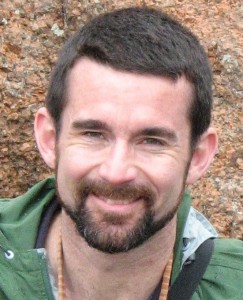 Who are you, what do you need, and how do I figure out how to care for you?
Who are you, what do you need, and how do I figure out how to care for you?
Fundamentally, those are the questions that drive every encounter between a doctor and a patient. A recent article in the New England Journal of Medicine calls for us to expand the “social history” facet of this to include six domains: individual characteristics, life circumstances, emotional health, perceptions of healthcare, health related behaviors, and access to and utilization of health.
The authors acknowledge that in primary care such comprehensive information may be “best obtained over multiple visits,” which is possible in a long term continuous relationship, but this still presents the challenge of how best to gather the history and what to do with it.
In gathering a social history, it is important to consider whether the primary issue at hand is the information that is gathered (e.g. documentation of resuscitation preferences, tobacco use, or marital status), or the conversation and relationship building. Sometimes, even the most thorough gathering of social history leads to the same amount of essentially flat and affectless note taking as reviewing a medication list. This can lead to both missing the patient’s story, and focusing on what has already happened at the expense of what could be done about it.
To illustrate: when I discuss smoking, to an extent I don’t care exactly how many packs my patient has smoked, I want to talk about how we can make it less. And, to an extent, I don’t care how much a patient drinks (if more than occasionally). For rather than focusing on quantifying the history, I want to engage in a discussion of whether there have been or are likely to be consequences, and again how we can work on cutting back.
On the other hand, sometimes documentation of the social stuff is important (again, resuscitation wishes, etc). And we need to be clear in our own heads when the “social history” conversation is about documentation, and when it is relational or therapeutic, as they are different types of conversation.
The other side of this, however, is the issue of time. This is not just “patient time” versus “paperwork (or computer) time,” or the oft heard complaints about being expected to “produce” too much clinical volume to be able to give good clinical primary care. This is about “patient time” versus “patient time.”
I’ve had several visits recently with folks who love to chat—and that’s great—and from at least one of those chats I learned the extent to which the patient’s primary health concern was really about the health of another family member. It’s wonderful to spend a lot of time with folks, and to be thought of as “that patient, caring doctor.”
Yet we are not simply “professional friends,” we are in the profession of caring for the sick, and the sick person who I go in to see 20 minutes late, because of wonderful conversations with other patients, does not care how wonderful those conversations were. Setting aside all the (very valid) concerns about whether we are “expected by the system” to do too much “stuff,” we also need to figure out how to practice (and teach our learners to practice) in a way that gathers useful social information, and builds relationships, while still doing this efficiently enough to care for the people waiting in line in the waiting room. We want to provide thoroughly compassionate care, but we care for a population, and sometimes other members of that population come in with an acute illness presenting an unexpected need.
Understanding social context is fundamental to understanding our patients, and exploring that social context can be valuable—not just for the information gleaned, but also for the relational healing connection that comes from compassionate listening. Nevertheless, to care for the sick means being available not only when schedules allow or when it is convenient, and it means that sometimes relational work with one patient may have to be sacrificed to attend to compassionate care for another.
Thoroughness, care for all our patients, and timeliness: all are important, but it is nearly impossible to meet all three goals all of the time.
William E Cayley Jr practices at the Augusta Family Medicine Clinic; teaches at the Eau Claire Family Medicine Residency; and is a professor at the University of Wisconsin, Department of Family Medicine.
Competing interests: I declare that I have read and understood the BMJ policy on declaration of interests and I have no relevant interests to declare.
